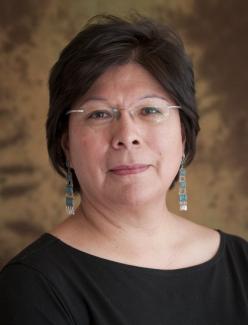
Indigenous Peoples live by the understanding that every decision we make today is about the future of the next generations, the Earth, the environment, the ecosystems, and all living things. We live in distressing times, witnessing environmental destruction, climate change, violence against women and children, war and conflict, and human rights abuses.
Indigenous youth are among the most vulnerable groups in the world and are particularly at risk for human trafficking, sexual and labor exploitation, and other forms of human rights abuses. They suffer the impact of armed conflict and civil unrest in many countries, as well as dislocation from their families and communities. They suffer the consequences of climate change through environmental destruction. Youth are our future, and we must take global action to protect their rights, their well being, and their survival. The stories in this issue of the CSQ are heartening and encouraging as youth speak to their futures and remind us of our responsibilities to ensure a world they can inherit. Our children are in a unique position to be the leaders of tomorrow and lead humanity on a good path as they engage our current realities.
Young leaders like Xiuhtezcatl Martinez are inspiring in their call to youth to take action around the world: “Young people are fighting like hell now so that generations down the road will never have to struggle in the way we have…They give me faith that the world we pass on to the next generation will be a planet worth inheriting.” Tuhi Martukaw speaks about the distinctive role of Indigenous youth, who, she says, “are in a position to walk between different worlds and between societies. We can partner with mainstream society, the media, and all relevant actors. The important thing is decision making and right to self-determination should be in our hands. We shouldn’t be following rules set by others; we should be the ones to make the calls.”
Setafa Uli reminds us of the importance of keeping Indigenous knowledge: “We have the responsibility to carry on this knowledge. . . . It’s what makes our communities resilient.” Alejandra Luis speaks about the sense of responsibility that many youth bring up in this issue: “We are the future. . . . We are the present. We have a great responsibility to get close to our grandparents, our grandmothers, to learn a lot from them. . . . If Pachamama disappears, all life disappears. I invite you to learn what you can from those who are still with you.”
Tokata Iron Eyes encourages youth to be vocal and speak out: “If you know that something’s wrong, if you feel uncomfortable,if you feel within yourself that you need to say something, just say it! Justspeak what’s on your mind.” And Xemiyulu Manibusan Tapepechul reminds youth to “believe in your ancestors. Our ancestors protect us every day. . . . We are the proof that they resisted. You are your ancestor’s dream. Please know that you are not your body,and that your body is not you. You are a Spirit, and your body is your vessel to communicate with this world.”
Let us stand around our youth, protect them, guide them, support their resistance, and lift them from the center of the circle as our future wisdom and leaders.
In spirit and gratitude for our children,
Suzanne Benally, Executive Director
(Navajo and Santa Clara Tewa)
